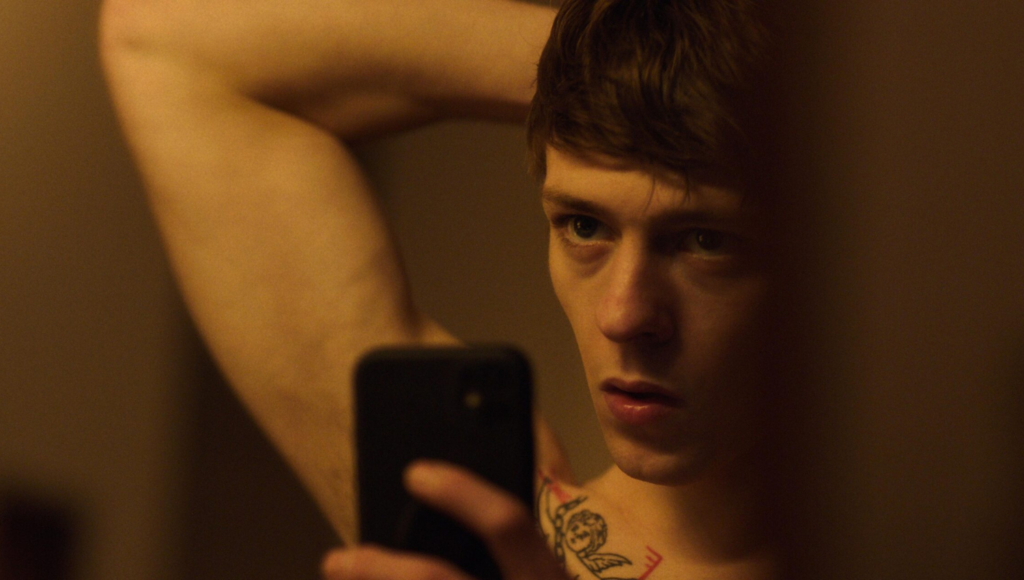
Sebastian
Dustin Chase
In the film “Sebastian,” Max is an award-winning short story writer working on his first novel. This is similar to the film’s director, Mikko Mäkelä, who went from short films to feature length. Max’s editor’s advice, “This is a novel; it’s entirely different,” is criticism equally applied to Mäkelä. The term sex worker might be relatively new, but films about this subject matter are not, whether mainstream or indie. There are elements of “Sebastian” that feel like a discovery for the material, “shame of shame” particularly, while other themes fall into cliché and genre tropes. Its star, Ruaridh Mollica, a new discovery for feature film, keeps this film afloat during its weakest moments.

We first meet 25-year-old Sebastian during a routine encounter. “What do you do besides….” His client asks. Sebastian is his escort name on a website where his company can be requested and paid for by clients visiting the London area. They don’t get to see his face until direct contact is made. Outside of his side hustle, Max (Mollica) works freelance for a popular local magazine and his LGBTQ stories and interviews are quite popular. He leads a double life, but those lines blur as he uses his experiences as Sebastian for a novel he is working on. “You’ve got that boy next door thing going on, but it’s all filth underneath,” he is told. As the release of his novel approaches, his popularity as Max threatens to expose Sebastian to his clients and the world.
[Mollica's] task is challenging, to play two halves of one character. It's a cold portrayal, often withdrawn and not always likable.
The grungy film “Beach Rats” from 2017, which had the same themes, made a star out of Harris Dickinson. The more mainstream “Good Luck to You, Leo Grande” did the same for Daryl McCormack. Films about sex workers, particularly males, aren’t a new concept, but young male actors using them to start their careers might be. Mollica is in every frame of the film, with many close-ups of his expressive face, yet his intentions remain ambiguous for much of the film. His task is challenging, but it isn’t one; he plays two halves of one character. It’s a cold portrayal, often withdrawn and not always likable. Despite the many encounters depicted on screen and discussions of sex, the film is cold.
Mäkelä’s script certainly has original insights into this world; he shows us how Max, a newbie, isn’t so sure of himself and what he is doing. The exploration of “shame about shame,” Max’s editor calls it, is one of the film’s most potent themes. Yet “Sebastian” spends too much time with one encounter after another, needing editing and trimming towards the runtime. These encounters and the discussions had rarely offered anything new to this world of storytelling. Our lead character is doing it with the information we are most interested in. In defense of his work, Max explains that these encounters connect generations of gay men who would otherwise never interact. The transmission of culture and history is what he wants to talk about in his novel and certainly a better concept for the film we are watching than the familiar tune “Sebastian” often sings.
Final Thought
Director Mäkelä's film about the digital hustler is frustratingly mixed with original ideas and genre stereotypes.
